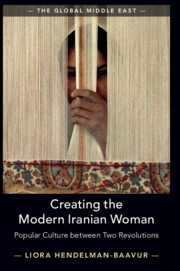Book contents
Introduction
Published online by Cambridge University Press: 17 October 2019
Summary
The sweeping victory of Hassan Rouhani in the Iranian presidential elections of 2013 was followed by high-profile declarations of his commitment to recover Iran’s relationship with the West, improve its economy, and resolve the country’s social dilemmas. On various occasions since he was elected, Rouhani has articulated the significance of equal opportunities and rights for women, the need to eliminate gender discrimination, and an effort to loosen government censorship of the internet and the press.1 These declarations did not prevent his government from taking legal actions against the magazine Zanan-e Emruz (Women of Today) in September 2014, only four months after its launch. Accusations were made against the editor, Shahla Sherkat, who previously edited Zanan (Women) for 16 years until it was shut down in 2008 for promoting un-Islamic ideas and feminist views that were harmful for the public’s mental health. Sherkat was once quoted saying that “journalism in developing countries is like walking on a tight rope. You have to be careful where you step, otherwise you will fall.” Notwithstanding the obstacles, women journalists still believe that the pen is mightier than any other weapon.2
- Type
- Chapter
- Information
- Creating the Modern Iranian WomanPopular Culture between Two Revolutions, pp. 1 - 22Publisher: Cambridge University PressPrint publication year: 2019



